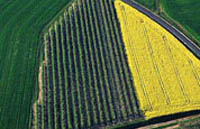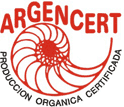
Encontrar vendedores de Productos de cultivo - intrans ecologicos
La guía Greentrade
Haga clic en el número de oferta para obtener los datos de la empresa.
Para obtener las direcciones de correo electrónico, tan sólo ha de suscribirse o nos puede contactar al tel. : +33 1 47 50 02 73
Fax : 33 1 47 50 28 67
Organic manure Vermicompost (biohumus) is loose black mass without specific smell produced upon the unique vermitechnology with the using of red Californian worms.
Vermicompost (biohumus) is used to fertilize the different agricultural crops: cereals, legumes, industrial, oil, vegetable crops, all fruit, greenhouse crops and flowers, lawns, sports fields, forest and ornamental trees. The manure is the main manure in the technologies of biological agriculture.
According to its agrochemical characteristics the vermicompost (biohumus) is complex manure containing all macro-(nitrogen, phosphorus, potassium, calcium) and microelements (copper, zinc, boron, magnesium) and other elements for the plant nutriment, useful micro-organisms that contribute to the land recovery .
Vermicompost (biohumus) is produced by the an environmentally friendly way without the addition of the chemical additives.
Best regards.
Mr. Ahmed Hassan: manager Organic line company.
Company Address: Abouxa - El Fayoum – Egypt.
There is a lot of confusion out there when it comes to Humic Acids; people always wonder if it is a fertilizer, and if not a fertilizer - what is it?
Humic Acids are best known as a soil conditioner which makes poor soils good and good soils great. Humic Acids work best when applied with fertilizers to create optimum growing conditions. They work as a compliment to the fertilizer and the benefit is a more efficient use of your fertilizer and the money you spent to add it.
Humics Work in Conjunction with Fertilizers
Humic Acids are not fertilizers, but can be added to any fertilizer prescription as a compliment to it. Fertilizers are analyzed on the basis of their value of Nitrogen, Phosphorus and Potassium or Potash (N-P-K). Humic Acids are analyzed on the basis of their content of humus and in the case of Black Earth that value is over 80%.
Humic Acids can Increase the Effectiveness of Fertilizer
Humic Acids have the ability to make your soil perform better even if it is a marginal soil condition. Fertilizers provide a nutrient source for the plant, but rarely have any benefit to the soil. When applied to sandy soils, Humic Acids can provide organic matter and help retain water, which is essential to plant growth. Some fertilizers are mobile in the soil and have the potential to leach out of the root zone in sandy soils. Granular Humic Acids can help hold these fertilizers in the root zone for longer periods of time and allow the plant to take up more nutrients. In hard pan or compacted soils, an addition of Humic Acid can break up these soils and allow nutrients to penetrate deeper down to the root zone.
We all know fertilizers are essential inputs in any cropping system. With Humic Acids, you are able to increase the efficiency of those fertilizers by increasing the nutrient uptake and retention. Along with that, Humic Acids can add organic matter to deficient soils, increase root vitality, increase chlorophyll synthesis, have better seed germination, stimulate beneficial microbial activity and have overall healthier plants and improved yields. They also work to unlock nutrients like phosphorus that are tied up in the soil.
Use Humic Acid to Restore the Health of Your Soil
Most people are quick to say Humic Acids are fertilizers, but in fact, it is more of a soil conditioner. The benefits far outweigh the costs and with so many soils being depleted around the world today, Humic Acids are an effective product to reverse the depletion trend. In a world where we are seeing world population grow at an exponential rate, and are losing arable acres on which to grow crops, we need to fertilize crops to maximize production and feed the hungry.
To keep your soil healthy, vibrant and productive, look towards a fertilization program with Humic Acids to help you achieve that. In turn, you will prosper with higher yields, a healthier soil and a sustainable future.
N = 3.253 %
P = 0.378 %
K = 0.752 %
C-Organic = 12.965 %
C/N Ratio = 3.985
Granular organic fertilizer :
C-Organic = > 13 %
C/N Ratio = 15-25
pH = 4-9
Moisture = 6-12 %
Size = 2-4mm > 85 %
Our specs for granulated :
C-Organic : > 13%
C/N Ratio : 15 - 25
pH : 4 - 9
Moisture : 6 - 12 %
Size : 2 - 4 mm > 85%
These are compost, chicken manure and animal dung for the materials.
Our organic fertilizer are suitable for all kind of fruits, vegetables, rice, cassava, cocoa.
Besides we possible to produce specs as per your request.
If you interested in our products, please feel free to contact us for more information.

Composition:
The nitrogen (N), phosphorus (P), potassium (K), at least 4 g / l
Humic substances not less than 3 g / l
Trace elements: Fe, Zn, Mg, Mn, Mo, B, Cu
Growth Stimulator during manufacturing process acquired anabiosis stable state and comes alive only diluted with water.
Preparation:
Dilute with water 1:100
Restoration of degraded soils - 4-5 liters of concentrate 1 hectare
Prepared fertilizers are active for a limited time and must be used within 48 hours after preparation. Before use, shake easily.
Usage:
Garden plant fertilization: 1 time in 10 days
Watering of plants grown in greenhouses: 1 time in 7 days
Indoor flowers watering 1 time in 15 days
Watering of lawns: 1 time per month
Spring soil fertilization: a single treatment-4-5 liters of concentrate 1 hectare
Autumn soil fertilization: a single treatment-4-5 liters of concentrate 1 hectare
Storage:
Keep away from food, children’s reach in the temperature from -3 to +35 ° C. Frozen product preserves all the useful characteristics, there might be organic sediments. Keep out of direct sunlight.
Storage time 5 years.
















